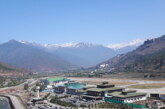President Pranab Mukherjee’s address to the joint session of both houses of Parliament on 8 June laid out the roadmap for the new government headed by Prime Minister Narendra Modi. The President congratulated the newly elected government saying that India had made a wise choice by voting for a united and strong government. The presidential address, an opportunity for the new government to convey its policy intentions, had all the hallmarks of a Modi vision document.
Narrating the statement of intent of the new government, the President outlined government’s agenda for coming five years with emphasis on a slew of measures to push growth and create jobs, which will include encouraging investment and creating a predictable, transparent and fair environment.
The bulk part of the presidential address, more or less, conformed to the Bharatiya Janata Party’s election manifesto, while drawing much of its inspiration from the promise-filled speeches that Modi delivered over the course of his campaign. It is an address that offers a vision of an India completely transformed in the next five years; however, grand promises in Presidential addresses are par for course.
Undoubtedly the Presidential Address has always been a document of the ruling party – it is cleared by the Cabinet beforehand – this time the it contained repeated use of Modi’s taglines frequently echoed during the election campaign like “Ek Bharat, Shresht Bharat” (United India, Successful India), “Minimum Government, Maximum Governance”, and “Sabka Saath, Sabka Vikas” (Development for one and all), “Har Haath ko Hunar, Har Khet ko Paani (skill to each hand, water to all fields)” and “Beti Bachao, Beti Padhao (save girl child, teach girl)” etc. It had also a few new ones, such as like “Per Drop More Crop”.
In the Presidential Address, there were striking alliteration of words beginning with ‘D’ and ‘T’. The President talked about government’s intent to revive Brand India riding on the country’s strength of 5 Ts — Tradition, Talent, Tourism, Trade and Technology. Similarly the speech also talked about 3 Ds — Democracy, Demography and Demand — and said that with these three Ds India is poised to actualize its aspiration. The speech also carried a number of attention grabbing terminologies in English.
The President’s address to the joint session of Parliament after a new government is formed outlines its vision and priorities. Pranab Mukherjee’s speech to the members of the 16th Lok Sabha and the Rajya Sabha bore the alliterative hallmark of Narendra Modi’s campaign speeches but essentially offered continuation of the previous government’s policies and programmes. This is welcome, rather than being a let-down.
Many of the grand schemes mentioned in Presidential Address form part of the promises the BJP had made in its election manifesto. For any government, achieving those goals would be a tall task, given the current resource constraint the government faces. But that they were mentioned in the president’s address is an assurance that the party in power now is keen on fulfilling its electoral promise made to the people. It is now to be hoped that Prime Minister Modi’s government quickly addresses the resources problem using innovative funding avenues and systems.
As expected, the focus of the president’s address was the economy – containing food inflation through improved supplies; achieving higher growth through improved effectiveness of investments; and creating more jobs and restoring the confidence of domestic and international investors. Improving governance too got some attention – with the promise of time-bound delivery of government services, elimination of obsolete laws and digitization of government records. Also reassuring was the promise of a rationalized and simpler tax regime to make it nonadversarial (a clear hint that unfriendly tax policies – a bane of the previous government – would be phased out), a renewed commitment to introduce the goods and services tax after addressing the concerns of the states (again a failing of the previous government that prevented its introduction) and an assurance of reforms to enhance the ease of doing business.
The Presidential Address has evoked mixed reactions. The BJP and other NDA allies have wholeheartedly welcomed the President’s speech, while some opposition parties have been critical of it. Modi Government’s roadmap for governance was termed as a “jugglery of words rehashed from the election slogans and low on how-to-do content”. Slamming the address as being replete with slogans used by Modi in the poll campaign which the country has been hearing for the past six months, Congress spokesperson Anand Sharma said in New Delhi on 9 June: “There is no new line of thinking. It is just jugglery of words. It does not give any sense of direction. It is full of platitudes and replete with clichés and slogans. There is no original vision of the government and the whole approach is superficial.”
While mocking at BJP’s plank of the “Minimum Government, Maximum Governance” plank, Congress spokesperson wondered whether it meant minimizing the role of Ministers, subverting the well-evolved Cabinet system of governance and maximizing the role of the Prime Minister in the government. He expressed concern over the ‘truncated world view’ of the BJP-led Government noting that the address is mum on Look East policy, BRICS, IBSA, West Asia and India’s policy towards African nations
Taking part on the Motion of Thanks to the President’s address in the Lok Sabha on 11 June, Samajwadi Party chief Mulayam Singh Yadav virtually attacked the Narendra Modi-led Central Government over making too many promises. While cautioning the Centre about the pitfalls of making a too much promises Mulayam Singh said: “You have made tall promises on several issues… I am warning you that you should not be so arrogant. We have earlier seen such electoral victory by Indira Gandhi and Rajiv Gandhi and fought those governments too. I am just reminding you this.”
However, Parliamentary Affairs Minister Venkaiah Naidu, had pooh-poohed the criticism saying, the Congress was yet to fathom the extent of the rejection it has got from the people.
(By FGR Bureau)



